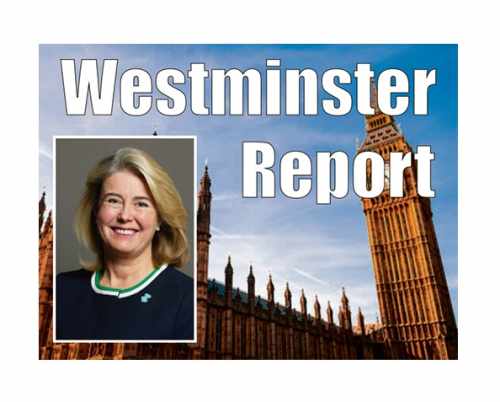Share this story!

Leigh On Sea News. Westminster Report by Southend West MP Anna Firth.
Westminster Report by Southend West MP Anna Firth.
Westminster Report by Southend West MP Anna Firth.
ONE of the key roles for a backbench MP is to scrutinise Government Legislation to ensure that we pass the best possible laws. One of the ways we do this is through different committees.
Every week in Parliament I am faced with new challenges, and in the last couple of weeks this has only increased as I have taken on a new appointment to the Digital Markets, Competition and Consumers Bill Committee.
As you may know, I already sit on the Education Select Committee. The responsibility of this committee is to scrutinise the work of the Department for Education, covering children’s social care, schools, colleges, the early years, and higher education.
Given the number of excellent schools in Southend, especially our brilliant grammar schools, it is a particular privilege to sit on this committee.
A Public Bill Committee is slightly different to a Select Committee. These are set up to examine the details of a particular Bill. Almost all Bills are automatically sent in a Public Bill Committee following their second reading in the House of Commons.
The committee that I have recently been appointed to has been set up to scrutinise the Digital Markets Competition and Consumers Bill. This Bill is designed to promote a new “pro-competition regime” which is expected to lower prices, increase online safety and give consumers more choice and control over online purchases by tackling exploitative practices like fake reviews and subscription traps.
Over the past 20 years or so, the internet has completely transformed the way we buy products and services, increasing accessibility, flexibility and choice.
It has also massively impacted on our economy: We now have more tech unicorns (companies valued at more than $1billion) than any other country in Europe. Last year, our tech start-ups attracted more investment than those of France and Germany combined, creating jobs and opportunities throughout the United Kingdom.
However, many of our competition regulations were designed for an analogue world and we need to act now to address the potential for consumer harm online. For instance, companies can make it unreasonably difficult for consumers to cancel a subscription or reduce choice by artificially ranking their own products higher in search results. This ultimately makes things more expensive for us, the consumer.
This week in the Committee I have been listening to evidence from a wide range of British tech companies about the horrifyingly unfair business practices of tech giants including Apple, Google, Amazon, and Microsoft.
The Competition and Markets Authority (CMA) estimates that in 2021 alone, Google and Apple made excess profits of more than £4bn in the UK. Whilst competition normally provides the “best outcomes for consumers”, this breaks down where a handful of huge companies dominate the global digital market.
For example, Apple and Google determine which apps are in the App Store and how they are ranked, discovered and paid for. They charge fees of 30% of revenue, which ultimately means higher consumer prices.
For example, the Co-Founder of XigXag, an app-based e-book store, explained how google charges her 30% commission on every sale through the app and then takes up to two months to pass on the remaining revenue. This compares to charges of just 3 to 4% and payment within 7 days on sales through her website where XigXag, like other web-based companies, have the ability to shop around for payment providers.
Other UK businesses, including Gener8, a new app-based, data capture service, which enables you to sell your own data and has 372 customers in Southend, described similar business-breaking stories.
We also heard how many tech entrepreneurs are put off from investing in and growing their businesses in the UK because of the way that tech-giants can operate.
The Match Group, which runs dating sites such as Tinder, told us that they only want to operate and headquarter in marketplaces that allow maximum innovation, flexibility and competition. The stranglehold that our current regulations allow companies such as Apple to have over the market means that they are less willing to invest in the UK, meaning that we are missing out on jobs, investment and the potential for the UK to become the global digital hub.
The new Digital Markets Bill, which I am scrutinising in Parliament, aims to solve this, and the good news is that there was universal, cross-party support for. I am looking forward to the next 20 sessions when we will be scrutinising the Bill line by line!
Read more.
Visit: https://leigh-on-sea.news
Facebook: https://www.facebook.com/leighonsea.news
Instagram: https://www.instagram.com/leighonsea.news
Contact us. Visit: https://leigh-on-sea.news/contact-us
Twitter: @leighonsea_news
